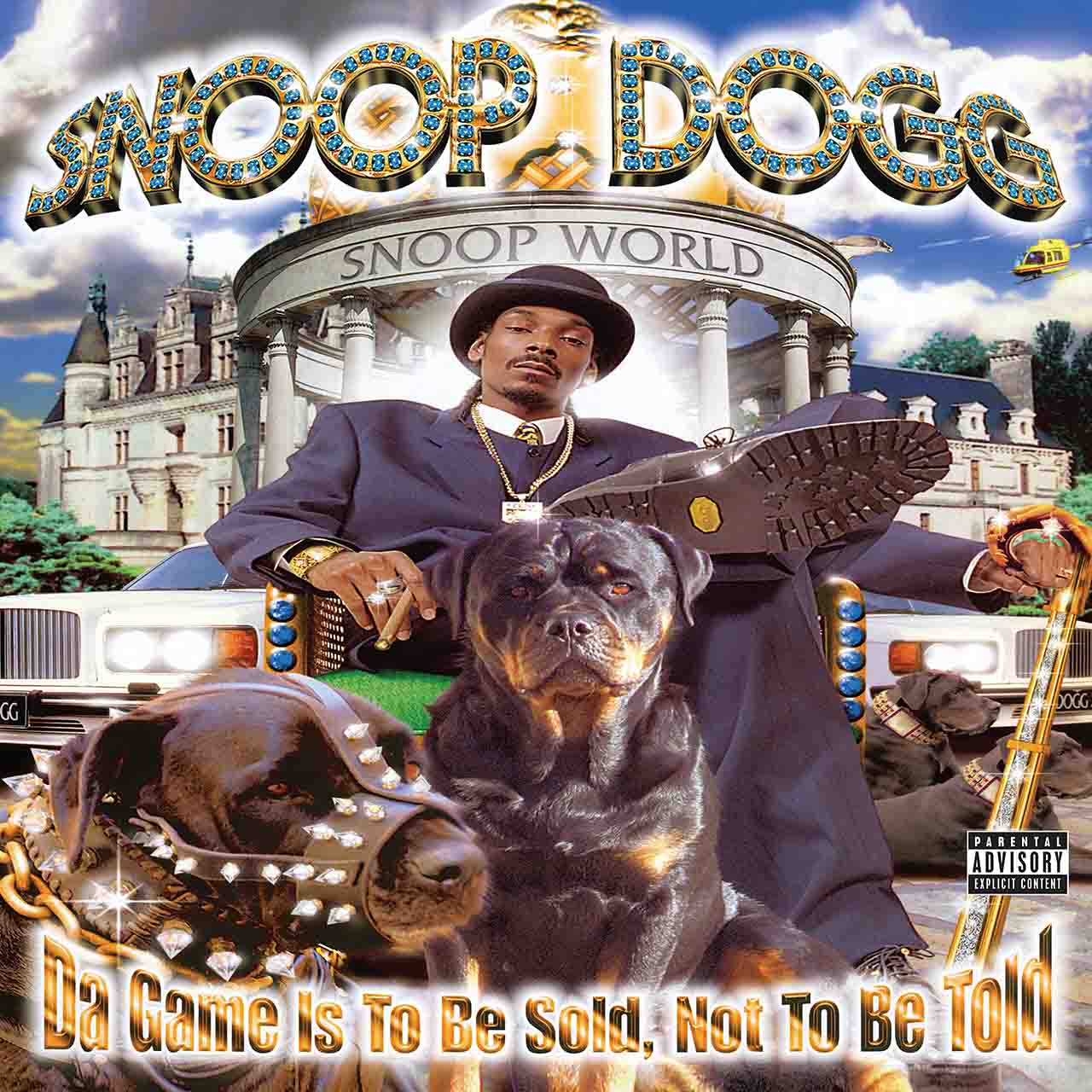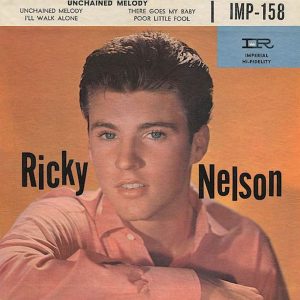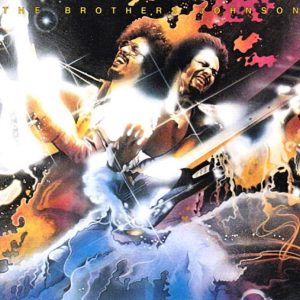Towards the end of 1997, Snoop Doggy Dogg, one of the biggest rap stars on God’s green earth, found himself in a bad spot. He was only four years removed from the release of his earth-shattering debut, Doggystyle, which at the time was the best-selling debut album of all time. But for the first time in his short career, Snoop’s momentum began to stall – an unlikely position for the Doggfather, who had shifted the sound of hip-hop just a few years prior.
Needless to say, the last two years of his life had been a tumultuous ride. His friend and labelmate Tupac Shakur had been tragically gunned down in Las Vegas. Another friend, Biggie Smalls, had recently met a similar fate. His mentor and producer, Dr. Dre, fled Death Row Records, the label they’d built from the ground up. Label boss Suge Knight had just been sentenced to nine years in prison for a probation violation stemming from an incident the night Tupac was killed in Vegas. The East Coast vs. West Coast beef was seemingly over, but there had been many casualties in its wake. Rap was in a different place.
Order Snoop Dogg’s Da Game Is To Be Sold, Not To Be Told on vinyl now.
Snoop was acquitted of murder charges in 1996, but despite the victory, it was clear the trial had taken a mental and emotional toll on him. To add insult to injury, his sophomore album, Tha Doggfather, had been panned by fans and critics alike. Despite going double Platinum, the album produced no hit singles. Many thought he couldn’t do it without the help of Dr. Dre. Whispers of Snoop’s downfall began.
Troubles with Death Row Records
Despite the setbacks, Snoop rallied and began work on his Doggumentary EP, a small collection of remixes and new records to hold fans over until his next full-length album. The EP was to feature work alongside Rage Against The Machine and Timbaland. A video was even shot for the lead single, “Midnight Love,” featuring Daz Dillinger and Raphael Saadiq. The single was well-received, and an October 7, 1997 release date was set for the project. But October 7 came and went with no Snoop release, and the EP was ultimately shelved. Death Row Records instead released the Gang Related Soundtrack, a double-disc that only featured Snoop on one song.
Snoop felt trapped and betrayed. Why was Suge shelving his music in favor of soundtracks filled with bottom-tier Death Row artists? Was Suge upset Snoop appeared alongside Puff Daddy on the Steve Harvey Show to squash the East versus West beef? Whatever the case, Snoop was stuck in an ironclad contract, and with royalties slowing up, Snoop began lashing out at his label and its overlord. Unable to release music through the proper channels, Snoop took to the streets to release not-so-thinly-veiled disses towards his label that popped up at mom and pop record shops and flea markets across the country (“Death Row Killa” and “Fuck Death Row” were two of the most popular).
The rise of No Limit
Around this time, Master P’s No Limit Records emerged as the hottest new label in rap music, dethroning Death Row as the street rap kings of the music biz. Noticing No Limit’s meteoric rise, Snoop, always one to spot a trend before the masses, popped up on “Gangstas” from Mystikal’s much-heralded No Limit debut Unpredictable. The feature was mutually beneficial for both parties, as Snoop was a hip-hop A-lister, and aligning with Mystikal and Master P was sure to keep Snoop’s name ringing in the streets. Surprisingly, Snoop’s laidback West Coast delivery sounded right at home over the sticky bayou backdrop provided by Beats By The Pound. Fans of both parties were excited.
Master P and Snoop formed a bond almost immediately. P, a marketing genius who was respected in the streets and the boardroom, was the hottest executive in rap; and was confident he could bring Snoop back to the prominence he once held. Seen as the last man standing on Death Row, the family vibe at No Limit appealed to Snoop Dogg, and he knew it would be easier to navigate the industry and the much-feared Suge Knight with the help of a strong team. Snoop was potentially the hottest free agent in the game.
Once 1998 rolled around, Snoop Dogg was popping up on nearly every No Limit release from Silkk The Shocker’s Charge It 2 Da Game to the I Got The Hook Up soundtrack. Naturally, rumors began to swirl that Snoop was enlisting as a No Limit soldier. However, industry trades gave conflicting reports, stating that Snoop was being courted by the likes of Def Jam, and Death Row claimed he owed the label six more albums and was staying put.
In April of 1998, Snoop was on the cover of The Source. The message was simple: “Snoop Dogg Wants To Leave Death Row.” The article was full of gems, with Snoop launching an all-out attack on Suge Knight and Death Row Records. He claimed they’d stopped paying him and were holding him and his music hostage: “That’s why I don’t give a fuck about Death Row right now,” Snoop said. “Y’all should just let me go. If you had let me go, I would have never said fuck Death Row. But y’all don’t even wanna let a n***a go. You hold onto me like I’m a slave or some shit. This is 1998. This ain’t 1898.”
Snoop joins No Limit Records
Tensions were high on the West Coast, and weeks later it was announced that Snoop Doggy Dogg was officially joining No Limit Records, now under the shortened Snoop Dogg moniker. Sources said Master P was able to procure Snoop Dogg after paying Suge Knight $3 million in cash, and giving him points on the next three Snoop albums under the No Limit/Priority umbrella. It was a sweet deal for Suge, but it was also the freedom and rebirth Snoop was looking for.
P began a marketing blitz immediately; making sure Snoop’s visibility was at an all-time high. This was the biggest acquisition in rap history akin to Lebron James joining the Miami Heat. Snoop Dogg was on every single No Limit release (no matter how big or small the artist), and was advertised in the inserts on each and every No Limit album. It was announced that Snoop Dogg’s debut album for the label, Da Game Is To Be Sold, Not To Be Told, would drop on August 4, 1998 – just months after he officially joined the Tank. Cover art was rushed out, and the album was firmly placed into the assembly line-like rollout of No Limit albums. The brand was strong, and the album was guaranteed to do gangbuster numbers. The world was watching, and everyone in hip-hop was curious how this partnership would turn out.
Snoop Dogg’s Da Game Is To Be Sold, Not To Be Told
Despite all the hoopla surrounding Master P, No Limit, and Snoop Dogg, when Da Game Is To Be Sold dropped in August of ’98, it was met with mixed reviews. Fans expecting Snoop to stay in line with his G-Funk roots were disappointed to hear he’d gone full southern rap, a full five years before that became the cool thing to do. Fans expecting features from Daz, Kurupt, and Warren G, instead found Snoop trading bars with the likes of C-Murder, Mia X, and Soulja Slim. Many fans weren’t ready for this type of shift in sound, but for a No Limit stan like this writer, it was a welcomed change. Snoop knew the south was about to take over, and he embraced it.
A constant throughout Snoop’s career is reinvention. Every few years, he throws a curveball, experimenting with new producers, new sounds, and new genres of music. This explains such Snoop moments as his gospel album, the Snoop Lion reggae experiment, and even his brief signing to Pharrell’s Star Trak imprint in the mid-’00s. He’s always switching it up, keeping things fresh.
For Da Game Is To Be Sold, Snoop Dogg didn’t want to go back in time, he wanted to look into the future. He wanted to give fans what they loved about No Limit Records and immerse himself in the sound and culture they’d already created. He wanted to calmly attack the rattling southern funk of Beats By The Pound, and float alongside the scene-stealing features from soldiers such as Mystikal and Mac.
“Snoop World,” the intro to the project, stands as one of the best songs to ever be released by Snoop Dogg and/or No Limit, while the album produced a total of two Top 20 Billboard singles, “Woof” and “Still A G Thang.” I like to pretend songs like “Gin & Juice 2” didn’t exist, but there’s real quality in tracks like “See Ya When I Get There,” and “20 Dollars To My Name.”
Some critics and fans saw Snoop’s No Limit debut as a failure, claiming the album was a disjointed and bloated cash grab. But the album was way more than that. It was a departure for Snoop – an opportunity to spread his wings and start fresh. It ushered Snoop into the next phase of his career, even if there were growing pains. Many artists don’t get that second chance, or another look. They get trapped in bad contracts and grow bitter and get stale – holding out until the public no longer cares. Then they blame everyone else but themselves. Both Snoop and Master P saw an opportunity in each other, and rode it into the sunset. It was executed perfectly.
Since his debut in 1998, Snoop is still a pop culture fixture – a household name that even your grandmother would recognize. He’s survived and thrived in an unforgiving industry where most get three to five years in the spotlight, tops. He’s been selling and telling you the game for decades now, and you probably didn’t even realize it. Whether fans like to admit it or not, this album is way better than remembered, and is the second most important album of his career.
Order Snoop Dogg’s Da Game Is To Be Sold, Not To Be Told on vinyl now.
Editor’s note: This article was originally published in 2018.




